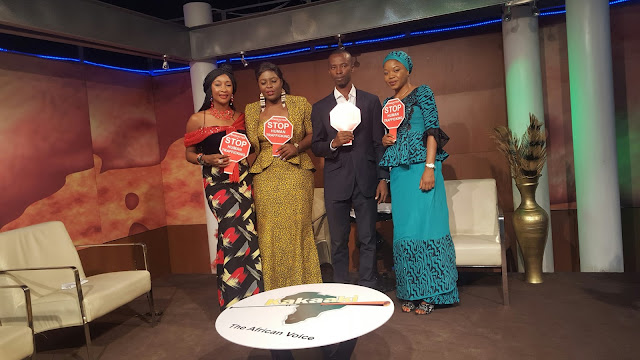For
years, human trafficking has continued to thrive in shadow and in the silence
of others. The future of young people have been frustrated, their dreams
shattered, and potentials caged because of human trafficking. An
estimated 27 million women, girls, boys, and men are currently victims of human
trafficking globally. From my findings, the number of victims
of human trafficking is more than the population of Ghana, Mozambique,
Australia, Netherlands, North Korea or Zambia.
Human
trafficking is defined as the recruitment, transportation, transfer,
harbouring or receipt of people by means of threat or use of force or other forms of coercion, of
abduction, of fraud, of deception, of the abuse of power or of a position of
vulnerability or of the giving or receiving of payments
for the purpose of sexual exploitation, labour exploitation, and other forms of
exploitations and abuses.
Some
of the factors that make young people vulnerable to human trafficking include:
a.
Poverty
b.
Ignorance/Illiteracy
c.
Family crisis or maltreatment at home
d.
Community crisis
e.
Porous border
f.
Unemployment
Victims
of human trafficking are used for:
a.
Sexual
exploitation: The victims, especially women and girls
are used for commercial sex works, domestic sex, pornographic production, bestiality, etc
b.
Labor
exploitation: The victims, especially men and boys are
used for child labour, forced labour, domestic works, etc.
c.
Organ
harvesting: In most cases, their organs such as
kidney, heart, and lungs are removed and sold in the black market. This is due
to high demand of kidney and other organs for transplants.
d.
Forced
marriage: Girls under the age of 18 years or perhaps above
can be trafficked and forced to marry. This is similar to what happened to most
of the Chibok girls.
e.
Baby
factory: Young women can be trafficked and impregnated to
produce babies which are often sold to unknown people. This is similar to what
happened in some part of south eastern states where there are baby factories.
f.
Rituals:
victims of human trafficking can be used for ritual purposes.
Martin Luther King
(Jnr) made it clear when he said, “Our lives begin to end the day we become silent about the things that
matter”. Human trafficking matters and should be a concern to everyone. There
is an urgent need for more young people to be in the forefront of combating
human trafficking, and no one needs to wait until he is directly affected
before speaking out against this evil. William
Wilberforce said, “Let it not be said
that I was silent when they needed me”.
We
can’t pretend as if human trafficking doesn’t exist. We can’t turn our back to
victims. We can’t overlook or neglect the vulnerable ones. We have to take
action, and nothing but action. Most importantly young people need to actively
get involved in combating human trafficking, because it is weapon against their
future.
If
you don’t do something now, something worst will happen, and more people will
become victims to human trafficking. Anyone can be a victim of human trafficking;
it doesn’t matter whether you are rich or poor, from rural or urban area, big
or small, male or female, etc.
You have to start now
to take action: Some of the actions you can take against human trafficking
include:
a.
Create:
There are many things you can create to promote the fight against human
trafficking.
·
Create an anti-human trafficking mobile
application that will help to keep children safe from traffickers.
·
Create/draw an art work to portray human
trafficking
·
Create/produce a song, poem, story,
movie, or documentary about human trafficking.
·
Write a fiction about human trafficking.
b.
Speak
Out:
learn about human trafficking and teach others.
c.
Organize:
You can organize a debate, quiz, dance, or song competition to promote the
fight against human trafficking. You can also organize a workshop/seminar to
sensitize people on human trafficking
d.
Social
media action: You can do a social media (facebook,
twitter, instagram, etc) campaign against human trafficking. It is also
important to do a daily or weekly facebook/twitter post about human
trafficking.
e.
Observe
and report: There are human trafficking incidences around your
environment you can observe and report to law enforcement agents, NAPTIP or
NGO’s.
f.
Volunteer:
Volunteer with organizations involved in combating human trafficking. Volunteerism
is a great way of getting involved in combating human trafficking. Volunteerism
is giving your services, resources, energy, talents, skills, experiences, etc
to a cause you are passionate about without expecting money in return. Devatop
Centre for Africa Development has Board of Volunteers where young people are
engaged in eliminating trafficking in persons and other related matters.
g.
Donate:
Donate materials or finances as low as $5 monthly to support the fight against
human trafficking.
h.
Support
Vulnerable People: There are millions of people who are
vulnerable to human trafficking as a result of insurgency, community crisis,
unemployment, poverty, discrimination, etc. Most of these vulnerable people can
be found in Internally Displaced Person’s Camp, Refugee camps, Streets,
Orphanage homes, rural areas, etc. You
can support or empower them with: food, shelter, scholarships, educational
materials, employment, etc
i.
Encourage
Survivors: Survivors of human trafficking need you to be there
for them. You can visit different shelters operated by National Agency for
Prohibition of Trafficking in Persons or other NGOs, and encourage them with materials/resources,
or provide employment opportunities for them. You can help to equip them with
skills.
Director, Devatop Centre for Africa
Development
Unclejoseph2013@gmail.com
+2348067251727
www.devatop.org



